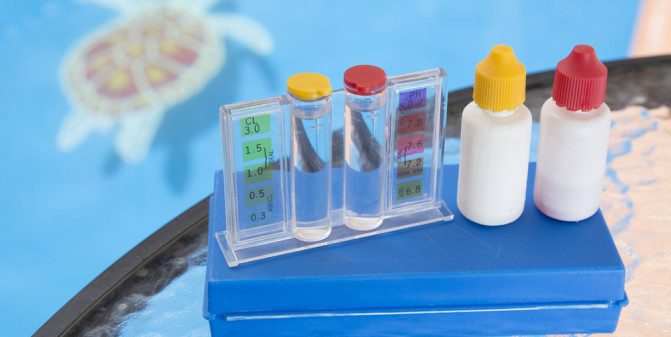Mar 14
2016
0
comments

How Can Chlorine Clean Your Pool and Still Be Safe?
How Can Chlorine Clean Your Pool and Still Be Safe?
Every summer, millions of Americans are diving into crystal clear water without giving any thought to the chemicals used to make it that way. Chlorine is an element that has been used to clean pools for decades, preventing the growth of algae and harmful bacteria without causing harm to swimmers. That’s pretty amazing when you think about how strong it must be to act as such an effective sanitizer.
